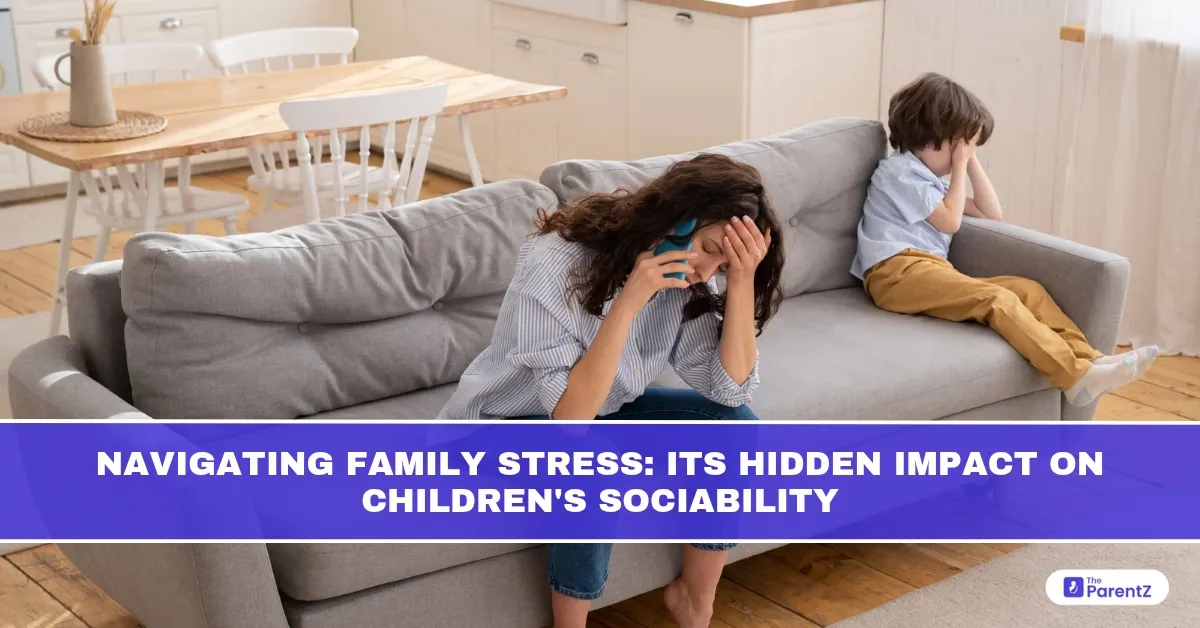Your home isn't just a building. It's the foundation of your child's world. The place where they learn how to exist with others. How to trust. How to connect.
But when family stress infiltrates this sanctuary, the consequences ripple through your child's developing social identity in ways many parents fail to recognize until the damage runs deep.
The Silent Wounds No One Sees
Children absorb stress like sponges. That argument you had with your spouse while your child played quietly in the next room? They heard it. The financial pressure that has you snapping at small inconveniences? They feel it. The unspoken tension that hangs in the air when family members avoid each other? It wraps around them like a fog.
These moments don't just disappear. They accumulate in your child's nervous system, teaching their developing brain that the world isn't safe, that relationships hurt, that connection brings pain.
Your seven-year-old who suddenly doesn't want playdates anymore isn't just "going through a phase." Your teenager who stays locked in their room isn't simply being dramatic. They're protecting themselves the only way they know how.
Raw Truth: What Your Child Can't Tell You
When your home becomes a battlefield—whether through explosive arguments or icy silence—your child learns dangerous lessons:
- That love is conditional and can be withdrawn at any moment
- That expressing needs leads to rejection
- That emotions must be hidden to keep peace
- That relationships are inherently unpredictable and painful
Your child won't say: "Mom, Dad, your constant arguing is rewiring my brain's ability to form secure attachments." Instead, their bodies speak for them. The stomach aches before school. The difficulty making friends. The clinging to safe relationships or pushing everyone away.
The Social Scars That Follow
What looks like shyness might actually be fear. What appears as aggression often masks vulnerability. What seems like independence could be resignation.
Children from stress-filled homes carry invisible barriers into every social interaction:
- Trust issues that poison friendships: When adults prove unreliable, how can peers be any different?
- Hypervigilance that exhausts: Constantly scanning for emotional danger leaves little energy for casual social connection
- People-pleasing that erases identity: Many children become chameleons, changing themselves to avoid conflict
- Control behaviors that push others away: Unable to control home stress, they overcorrect by controlling friendships
These aren't minor, temporary adjustments. These are fundamental alterations to how your child approaches human connection. And they can last a lifetime.
The Numbers Don't Lie
Research shows children from high-stress homes are:
- More likely to struggle with maintaining friendships
- More likely to develop social anxiety
- More vulnerable to bullying (both as victims and perpetrators)
- At greater risk for relationship difficulties throughout adulthood
Each argument, each stress-filled day, each emotionally unavailable moment compounds these odds. This isn't about guilt—it's about reality.
Your Child's Voice
If your child could articulate what they're experiencing, they might say:
"When you fight, my stomach hurts so bad I can't think about anything else."
"I don't invite friends over because I never know if today will be a good day or a bad day."
"I'm afraid to get close to anyone because people who love each other end up hurting each other."
"I'm exhausted from trying to make everyone happy all the time."
"Sometimes I feel like the only grown-up in the house."
Breaking the Cycle
The good news is that children are remarkably resilient. Their brains remain plastic, adaptable, and capable of rewiring when given different experiences.
The first step isn't complicated, but it is hard: acknowledge the reality. Your family stress isn't "just how things are." It isn't normal. It isn't something children simply adjust to or overcome naturally.
Next comes the brutal honesty of seeing how this stress manifests in your child's social world:
- Do they withdraw from opportunities to connect?
- Have they developed perfectionist tendencies?
- Do they seem older than their years, taking on adult worries?
- Are their friendships brief or troubled?
- Do they struggle with setting healthy boundaries?
These aren't character flaws in your child. They're adaptations to the environment you've created.
The Path Forward
Recovery begins with stability. Children need consistency more than perfection. They need to see a repair after a conflict. They need spaces free from adult stress where they can simply be children.
This might mean:
- Creating "stress-free zones" in your home, times and places where adult problems stay firmly with adults
- Learning to fight fair if conflicts arise, showing children that disagreement doesn't mean destruction
- Getting professional help to address family stress at its source
- Building support networks so your stress has appropriate outlets
- Directly addressing social difficulties your child shows rather than assuming they'll "grow out of it"
The work is hard. The stakes are high. But your child's ability to form healthy relationships—the single greatest predictor of lifelong happiness—hangs in the balance.
Conclusion
Family stress isn't just about getting through today. It's about who your child becomes tomorrow, how they'll connect, whether they'll trust, and whether they'll know how to give and receive love without fear.
Your child deserves a foundation that teaches them relationships can be safe harbors, not storms to weather. That vulnerability leads to connection, not exploitation. That love, while imperfect, should bring more peace than pain.
The choice to address family stress isn't just about improving your home atmosphere. It's about giving your child the chance at social connections that nourish rather than drain them, for the rest of their lives.
Your child is watching, absorbing, and learning. What are they learning from you today about how humans should treat each other? The answer will echo through their relationships for decades to come.





Be the first one to comment on this story.